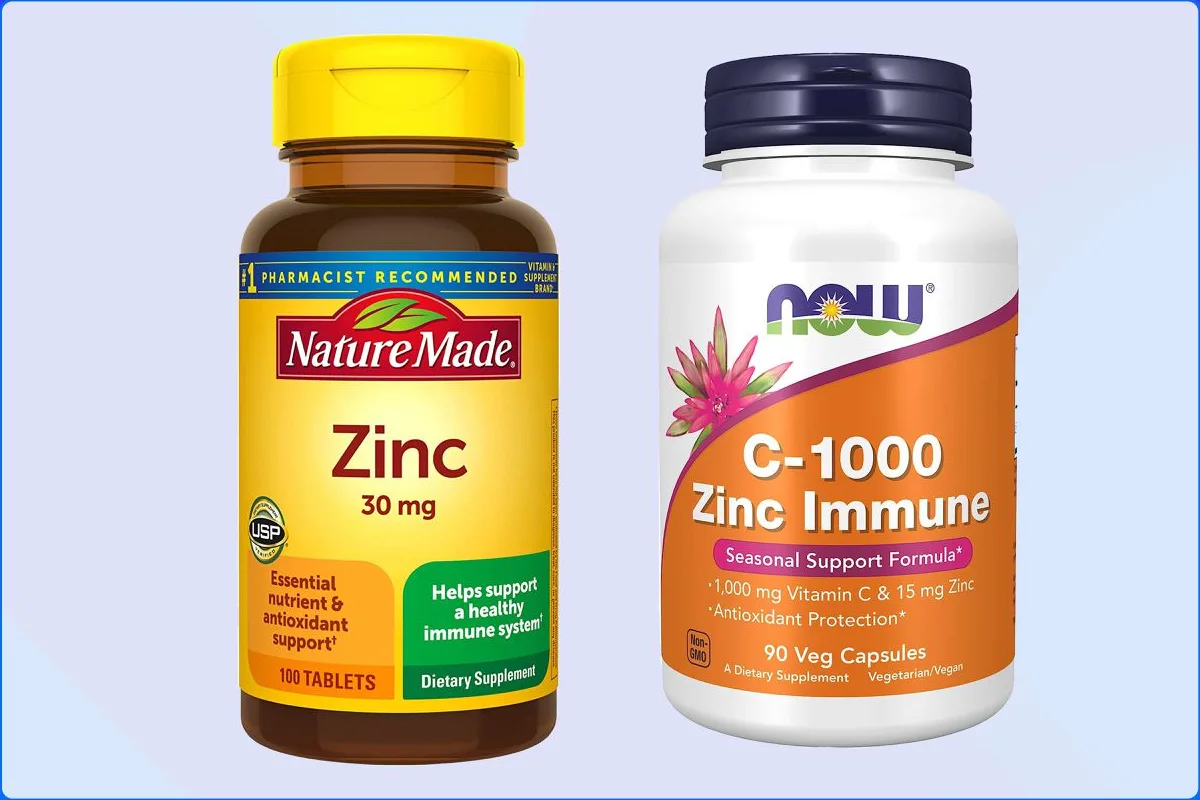Zinc Supplements – It is essential to consider the type of zinc, the dosage, and the form of the supplement. There are several types; some, such as zinc picolinate, may be better absorbed, while zinc acetate may be more effective in shortening the duration of the common cold.
Regarding dosage, 15 to 30 mg of elemental zinc per day recommend for an adult. 40 mg daily should not be exceeded unless under medical supervision. It could cause pronounced side effects, including decreased immune function, low copper levels, and reduced HDL cholesterol levels, known as “good cholesterol.”You can find zinc supplements in capsule, tablet, and liquid form.
Table of Contents
Benefits of Zinc-Based Supplements
It is an essential nutrient that provides a series of benefits to your health. Next, we analyze some of them:
Stimulates the Immune System
Immune cells depend on zinc for healthy development and function. This role that zinc plays in immune function is why researchers suspect that increasing zinc intake when you’re sick or just before you get sick may help shorten the duration of illness or prevent it altogether.
According to a meta-analysis, at least 75 mg of zinc per day reduced the common cold in 33% of patients. A second meta-analysis found that patients who took 80 to 92 mg of zinc per day to treat their cold recovered three times faster than those who didn’t, leading the study’s researchers to recommend that people take acetate of zinc in the form of tablets to suck, within 24 hours after the onset of symptoms.
Control Blood Sugar
It should note that people with diabetes might be at increased risk of zinc insufficiency. A study published in 2020 showed that 6.4% of participants in the control group were zinc deficient, while 67.9% of the diabetic group were low. In some cases, these people will be able to meet their needs through diet, while others may benefit from supplementation.
Other research noted that zinc supplementation contributed to blood sugar control and promoted healthy lipid parameters among people with diabetes. Additionally, zinc supplementation has show to increase insulin sensitivity among obese individuals.
Likewise, zinc plays an essential role in the storage and secretion of insulin, the hormone that allows cells to use the sugars from the food we eat so that they do not accumulate in the blood.
Slows the Progression of Macular Degeneration
It is an eye disease that tends to worsen with age. However, it can treat with some essential vitamins and minerals. A systematic review suggested that supplementation with a multivitamin containing zinc may prevent progression. It may be because the mineral plays a crucial role in the retina’s health.
Softens Acne
Zinc contains anti-inflammatory properties and can decrease oil production, making it a potential candidate for fighting acne. However, one of this mineral’s benefits has not study as thoroughly as other treatments, such as salicylic acid and glycolic acid.
Promotes Cardiovascular Health
A 2015 systematic review and meta-analysis created that zinc supplementation (doses varying from 15 to 240 mg per day) helped with several factors related to heart health. The parameters studied included the reduction of total cholesterol and triglycerides. Another study associated higher zinc intake with lower systolic blood pressure readings among a group of 40 obese Korean women.
Zinc Supplements for Children and Pregnant Women
According to the latest studies, zinc helps the body make proteins and DNA and is also necessary for proper growth and development. Because of these functions, it is an essential mineral for pregnant women and young children. Zinc supplements can help prevent preterm labor.
February 2015 found a 14% discount in preterm birth when pregnant mothers took a zinc supplement. But the investigators noted that this could be because most of the studies they looked at involved low-income women who may have had poor overall dietary quality.

However, pregnant women and young children should avoid zinc deficiency by ensuring they get enough of this mineral in their diet. In this sense, pregnant women’s recommended zinc intake is 11 mg daily.
On the other hand, the lack of zinc in the child’s body can cause a delay in the growth of children. According to a March 2018 meta-analysis, zinc supplementation in infants and toddlers promoted healthy growth and increased height and weight, especially after the child’s second birthday.
However, experts say that zinc supplementation “is not yet necessary or recommended for children, unless there is a serious deficiency.” It would help refer your pediatrician to the specific risks and potential benefits before starting treatment with dietary supplements.
Tips to Combat Zinc Deficiency
Despite being the second most abundant trace element in the body (after iron), and being present in all cells, some people may be deficient in zinc. It is an energetic mineral that your body uses in countless ways. And it is necessary to activity more than 300 enzymes that aid metabolism, digestion, nerve function, and many other processes.
It should note that severe zinc deficiency is rare, usually occurring in people with rare genetic mutations, infants whose mothers do not have enough zinc, people with addictions (such as alcohol), and patients taking certain immunosuppressive medications.
Symptoms of Severe Zinc Deficiency may include the following, among Others:
- Decreased defenses and, therefore, immunity.
- Delayed sexual maturity and fertility problems.
- Skin rashes, thinning hair, and dry skin.
- Chronic diarrhea and probable lack of appetite.
- Impaired wound healing.
By contrast, milder forms of zinc deficiency are more common, especially in children in developing countries, where diets often lack essential nutrients. Its estimate that around 2 billion people worldwide are deficient in zinc due to inadequate dietary intake.
Sources and Foods Rich in Zinc
Many animal and plant foods are naturally ironic in zinc. It makes it easier for most people to consume adequate amounts of trace minerals. Specifically, these are the sources with the highest zinc content:
- Seafood: Oysters, crab, mussels, lobster, and clams.
- Meat: Beef, pork, and lamb.
- Poultry: turkey and chicken.
- Fish: Sardines, salmon, and sole.
- Legumes: Chickpeas, lentils, beans.
- Nuts and Seeds: Pumpkin and hemp seeds, walnuts, and cashews.
- Dairy Products: Milk, yogurt, and cheese.
- Eggs
- Whole Grains: Oatmeal, quinoa, and brown rice.
- Vegetables: Mushrooms, bread, peas, asparagus, and plant leaves.
Animal crops, such as meat and shellfish, contain high quantities of zinc in a form that quickly absorb by the body. It would help if you kept in mind that zinc found in plant sources such as legumes and whole grains is absorbed less efficiently. It is due to other plant compounds that inhibit absorption.
We have named a long list of foods and sources rich in zinc, but many other products on the market fortify with this ingredient, such as breakfast cereals or some cereal bars. In your nearest herbalist, you can also find food supplements based on zinc.

